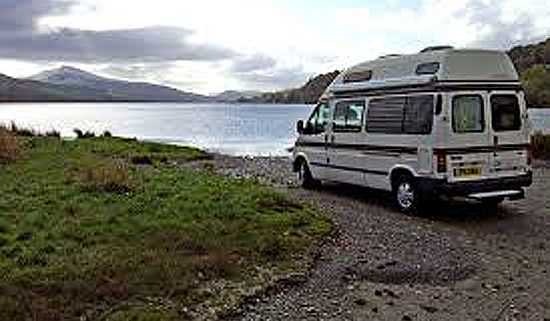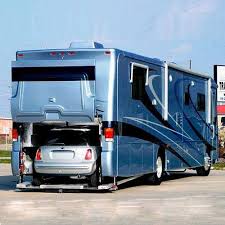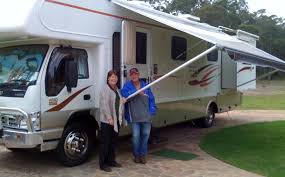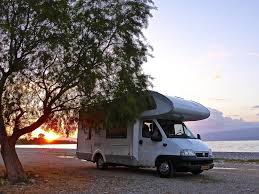Weird Things About Full-time RVing
The 7 Weirdest Things About Full-Time RV Life
To most people, the idea of living full time in an RV seems crazy. People who out-of-the-blue choose to give up their homes – to pull up stakes and hit the road with the purpose of living and traveling in their rigs full time, are clearly “out of the box” thinkers – ready to take risks. Although it might not be for everybody, it’s a nomadic lifestyle full of adventure as well as challenges and a constantly changing scene.
Here is a list of some of the biggest adjustments you’ll need to make – and the things about living on the road that may seem just plain weird!
1.) Waking up each day and needing to remember where you are!
If you are living somewhere for a week or less – especially if it’s a one-night stopover somewhere – it’s would certainly be a confusing moment stepping out of the door in the morning and re-adjusting to an entirely new environment, particularly if you arrived late the previous day. A lot of your mornings will start on a surprise note, i.e. you could wake up and discover you are living next to a lake today!
2.) You are not on a perpetual vacation – you are just living as locals on a temporary basis.
Most times it feels far different from a vacation, where you would have a hotel room, eat meals at restaurants and not work, but with full time living you’ll spend most of your days at home cooking and doing some domestic tasks before going out to see local sights.
3.) You’ll never know where anything is in an area unless you stay a while!
You’ll have to research or ask someone where things are, unless you drive past them and still remember their locations. Anytime you pull into a new place, you will have to quickly memorize everything you see: grocery stores, gas stations, post offices, Red-Box for movie rentals – and so on.
4.) You’ll always have new neighbors.
One advantage to this is you’ll not have to deal with bad neighbors for more than a few days, but it’s also hard to see new friends come and go so quickly. You’ll meet some amazing friends –each has an interesting story to tell, and you’ll only get to be in their company for a little while.
5.) Moving is no longer so stressful or expensive.
Moving is one time-consuming and costly process that most people don’t want to do – but not anymore when you are on a rig. Most of the barriers you used to have are gone now. If you get to a new area and don’t like it – you’ll just move on. If you get somewhere and love it, you can stay longer if you want!
6.) Even though you’re surrounded by the great outdoors, you’ll still have to force yourselves to go outdoors at times.
It’s sometimes difficult to get over the “office mentality” of keeping yourself inside all day, thanks to many years spent working in offices. Working outside can be hard, It’s nearly impossible to see your computer screen, it’s windy, and there are insects and distractions all around.
7.) Being afraid to stay in your RV home during a bad storm.
Your real “sticks and bricks” house could be invincible against the great outdoors, but after seeing a storm up close in your RV – you would probably consider heading for higher ground. At a campsite you could literally see a large tree limb fall with a huge crash that might crush an RV. You could also be close to bodies of water in heavy rain that might flood and sweep you away.




